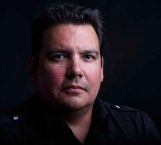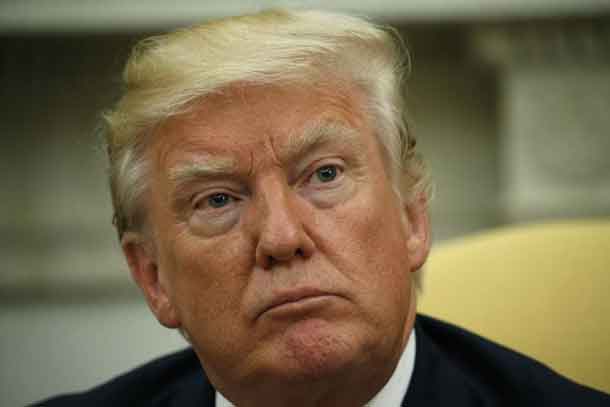Unmarked graves weaken Trudeau’s hand at criticizing China’s treatment of Uyghurs
OPINION – For months, Canada has been a leader in an international movement to investigate China for its treatment of Muslim Uyghurs in Xinjiang province.
Human rights groups Amnesty and Human Rights Watch have for years accused China of crimes against humanity, citing evidence that more than one million Uyghurs have been detained in what officials call “re-education camps.”
In these camps, there is evidence of forced sterilization of women, sexual exploitation, and torture. Slave labour is openly practised. Uyghur children are indoctrinated into schools meant to destroy their culture.
Anyone who tries to advocate for Uyghur people is arrested and jailed alongside hundreds of thousands of Uyghur imprisoned due to their identity.
The official line from Chinese officials is that the camps are for “security” against terrorism and the government’s policies have been misrepresented.
Undeterred, the United States, Canada, the United Kingdom and other countries have called for investigations in China, with most officially declaring that a genocide is taking place.
In fact, Canada was only the second country to call China’s actions a genocide, passing a unanimous motion in Parliament on Feb. 23, 2021.
Explaining why he was supporting the Liberal-led motion, Opposition Leader Erin O’Toole said that Canada must send a “clear and unequivocal signal that we will stand up for human rights and the dignity of human rights, even if it means sacrificing some economic opportunity.”
For months, Canada has led calls for an international investigation but this week China responded by making a statement at a meeting of the United Nations Human Rights Council.
“We are deeply concerned about the serious human rights violations against the Indigenous people in Canada,” said Jiang Duan, an official for the Chinese government. “Historically, Canada robbed the Indigenous people of the land, killed them and eradicated their culture.”
China then joined with the governments of Iran, Russia, Belarus, Syria and Venezuela in demanding the international community investigate Canada for human rights abuses.
Unquestionably, this was a political move intended to deflect pressure, but it’s also sign of how impactful the discovery in May and June of nearly one thousand Indigenous children in unmarked graves at residential school sites across the country has become.
Canada’s global reputation on human rights is now in closer to China than most would care to admit; with the polices of both countries eerily similar.
The fact is that Canada, as much as China, forced First Nations, Inuit and Métis communities out of their homes and onto little plots of land, arrested individuals due to their beliefs, and had institutions that practised slave labour, forced sterilization, sexual exploitation, and programs intended to eliminate culture and identity.
I haven’t even spoken about all of the deaths yet — which in the coming weeks will undoubtedly be more, as searches increase at residential school sites across the country.
Detractors may argue that the genocide in China is current and Canada’s is past, but then one would have to ignore the vastly disproportionate amount of Indigenous children in child welfare systems, Indigenous inmates in prisons, and lack of Indigenous language and culture programs in virtually every single institution across this country.
Want proof that Canada doesn’t treat Indigenous Peoples as human beings and human rights abuses are happening now?
Try 51 long-term drinking water advisories in 32 First Nations communities. No one in the country has to boil water, but apparently Indigenous Peoples do.
In response to China’s call for an investigation into Canada’s abuses of Indigenous people, Prime Minister Justin Trudeau said: “The journey of reconciliation is a long one, but it is a journey we are on. China is not recognizing even that there is a problem. That is a pretty fundamental difference.”
Perhaps, but China certainly seems to recognize Canada has a problem.
Trudeau then asked: “In Canada, we had a Truth and Reconciliation Commission. Where is China’s truth and reconciliation commission? Where is their truth? Where is the openness that Canada has always shown and the responsibility that Canada has taken for the terrible mistakes of the past, and indeed, many of which continue into the present?”
This might be true if not for the events of the past month, which illustrate that multiple, consecutive Canadian governments knew about children dying at residential schools and either didn’t care to check or, worse, refused to do anything.
These crimes didn’t end with the closure of residential schools in the 1990s but their legacies continued on through the governments of Mulroney, Chrétien, Martin, Harper and Trudeau — all of whom refused or resisted searching for Indigenous children until communities did it for the most part themselves.
So much for the “responsibility,” Trudeau says, “Canada has taken.”
This month the federal government promised almost $30 million to help the search — an important step, but an admission of how little has been done.
The problem is that Canada’s guilty record on human rights is now undeniable, and has consequences.
The main one: it’s going to be hard to point a finger, when there are three pointed back.
 Niigaan Sinclair
Niigaan Sinclair
Originally appeared in the Winnipeg Free Press in June 2021. Republished with the permission of the author.
The views, opinions, and positions expressed by all columnists and contributors are the author’s alone. They do not inherently or expressly reflect the views, opinions and/or positions of NetNewsLedger.







